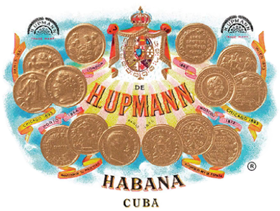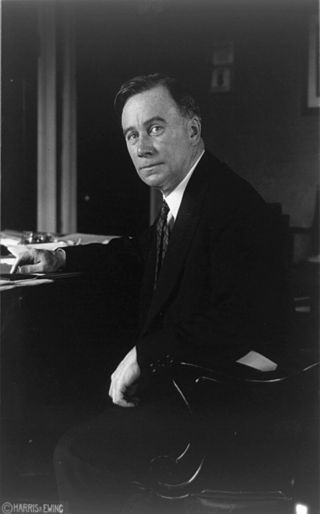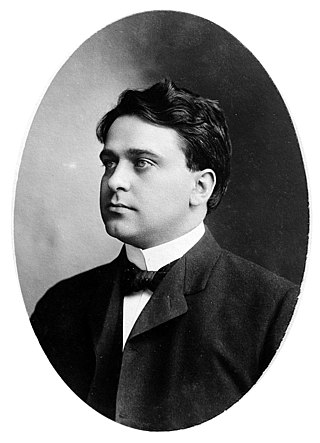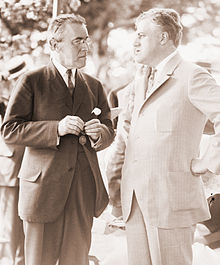
The Office of Foreign Assets Control (OFAC) is a financial intelligence and enforcement agency of the U.S. Treasury Department. It administers and enforces economic and trade sanctions in support of U.S. national security and foreign policy objectives. Under Presidential national emergency powers, OFAC carries out its activities against foreign states as well as a variety of other organizations and individuals, like terrorist groups, deemed to be a threat to U.S. national security.
The Union Banking Corporation (UBC) was a New York investment bank incorporated in 1924 in the United States. During World War II, under the U.S. Trading with the Enemy Act, the United States government seized the bank's assets pending investigation of the bank's business involving a former party member of the Nazi government in Germany, Fritz Thyssen. The now-former U.S. Senator Prescott Bush was a founding member and is included among its seven directors whose entire collective shareholdings in Union Banking Corp. were shares wholly owned by, and held on behalf of, the Thyssen empire's Bank voor Handel en Scheepvarrt in Rottendam. [1]

The Trading with the Enemy Act (TWEA) of 1917 is a United States federal law, enacted on October 6, 1917, in response to the United States declaration of war on Germany on April 6, 1917. It continues to give the President of the United States the power to oversee or restrict any and all trade between the United States and its enemies in times of war. TWEA was amended in 1933 by the Emergency Banking Act to extend the president’s authority also in peace time. It was amended again in 1977 by the International Emergency Economic Powers Act (IEEPA) to restrict again the application of TWEA only to times of war, while the IEEPA was intended to be used in peace time.

Alexander Mitchell Palmer was an American attorney and politician who served as the 50th United States attorney general from 1919 to 1921. He is best known for overseeing the Palmer Raids during the Red Scare of 1919–20.
Silesian-American Corporation (SACO) was registered as a corporation in Delaware in 1926 to assume ownership of the Giesche Spolka Akcyjna (Giesche) that was registered as a corporation in Katowice, Poland earlier during the interwar period. SACO gave substantial loans to Giesche’s Erben by selling $15,000,000 collateral trust sinking fund bonds that would mature on August 1, 1941. Giesche was that part of the holdings of the German corporation Bergwerksgesellschaft Georg von Giesche's Erben that were in the previously German controlled Upper Silesia territory with the re-established Poland.
The American IG Chemical Corporation, or American IG for short, was an American holding company incorporated under the Delaware General Corporation Law in April 1929 and headquartered in New York City. It had stakes in General Aniline Works (GAW), Agfa-Ansco Corporation, and Winthrop Chemical Company, among others, and was engaged in manufacture and sale of pharmaceuticals, photographic products, light weight metals, synthetic gasoline, synthetic rubber, dyes, fertilizers, and insecticides. The Moody's industrial manual listed an affiliation between IG Farben and American IG at the time of founding. First, Hermann Schmitz, who was the second after Carl Bosch in IG Farben's hierarchy, and then his brother, Dietrich A. Schmitz, served as American IG's presidents. It was re-incorporated as General Aniline & Film (GAF) Corp. in 1939 after a merger with General Aniline Works.

David Lionel Bazelon was a United States circuit judge of the United States Court of Appeals for the District of Columbia Circuit.

H. Upmann is a Cuban brand of premium cigars established by banker Hermann Dietrich Upmann. The brand is currently owned by a British corporation, Imperial Brands. The cigars are manufactured by Habanos S.A., the state-owned tobacco company in Cuba, and Altadis in La Romana, Dominican Republic.

Eduard Reinhold Karl Schulte was a prominent German industrialist. He was one of the first to warn the Allies and tell the world of the Holocaust and systematic exterminations of Jews in Nazi Germany occupied Europe.

Francis Patrick Garvan was an American lawyer, government official, and long-time president of the Chemical Foundation, Inc. The Chemical Foundation was established to administer in the public interest 4,500 German patents associated with production of synthetic organic chemicals and related pharmaceuticals seized by the Office of Alien Property Custodian after the US entered World War I.

Bradley Webster Palmer was a prominent U.S. attorney and businessman. He was involved with the creation and development of multiple corporations, including the United Fruit Company, Gillette Safety Razor Corp., and International Telephone & Telegraph Corporation. He was also part of the American delegation at the Paris Peace Conference following the First World War.

Internment of German resident aliens and German-American citizens occurred in the United States during the periods of World War I and World War II. During World War II, the legal basis for this detention was under Presidential Proclamation 2526, made by President Franklin Delano Roosevelt under the authority of the Alien Enemies Act.

William Warfield Wilson was a U.S. Representative from Illinois.

The War Claims Act of 1948, or Public Law 80-896, is a United States federal law passed by the 80th United States Congress on July 3, 1948.
The Custodian of Enemy Property is an institution that handles property claims created by war. In wartime, civilian property may be left behind or taken by the occupying state. In ancient times, such property was considered war loot, and the legal right of the winner. In the Fourth Geneva Convention Article 147, such action is defined as war crime:
"Grave breaches to which the preceding Article relates shall be those involving any of the following acts, if committed against persons or property protected by the present Convention: willful killing, torture or inhuman treatment, including biological experiments, willfully causing great suffering or serious injury to body or health, unlawful deportation or transfer or unlawful confinement of a protected person, compelling a protected person to serve in the forces of a hostile Power, or willfully depriving a protected person of the rights of fair and regular trial prescribed in the present Convention, taking of hostages and extensive destruction and appropriation of property not justified by military necessity and carried out unlawfully and wantonly."

The War Powers Act of 1941, also known as the First War Powers Act, was an American emergency law that increased Federal power during World War II. The act was signed by U.S. President Franklin D. Roosevelt and put into law on December 18, 1941, less than two weeks after the Japanese attack on Pearl Harbor. The act was similar to the Departmental Reorganization Act of 1917 as it was signed shortly before the U.S. engaged in a large war and increased the powers of the president's U.S. Executive Branch.

Interhandel, short for Internationale Industrie & Handelsbeteilungungen, was a Swiss conglomerate, known for its long-running disputes with the U.S. government over German ownership during World War II. Interhandel, which had both financial as well as industrial holdings was the corporate successor of I.G. Chemie, which the U.S. government had claimed was a front organization for Germany's I.G. Farben during World War II.

Dallas Selwyn Townsend Sr. was an American Republican Party official who served as the Assistant United States Attorney General during the Eisenhower administration. He was the father of CBS Radio news reporter Dallas Townsend.

Air Raid Attack Act of 1942 was a United States federal statute authorizing the United States civil defense to protect Americans and property from bombing attacks, sabotage, and war hazards upon the United States entry into World War II. The Act of Congress established Civilian Defense regulations prohibiting the obstruction of the duties and rights of local districts, municipals, counties, and State officials.















